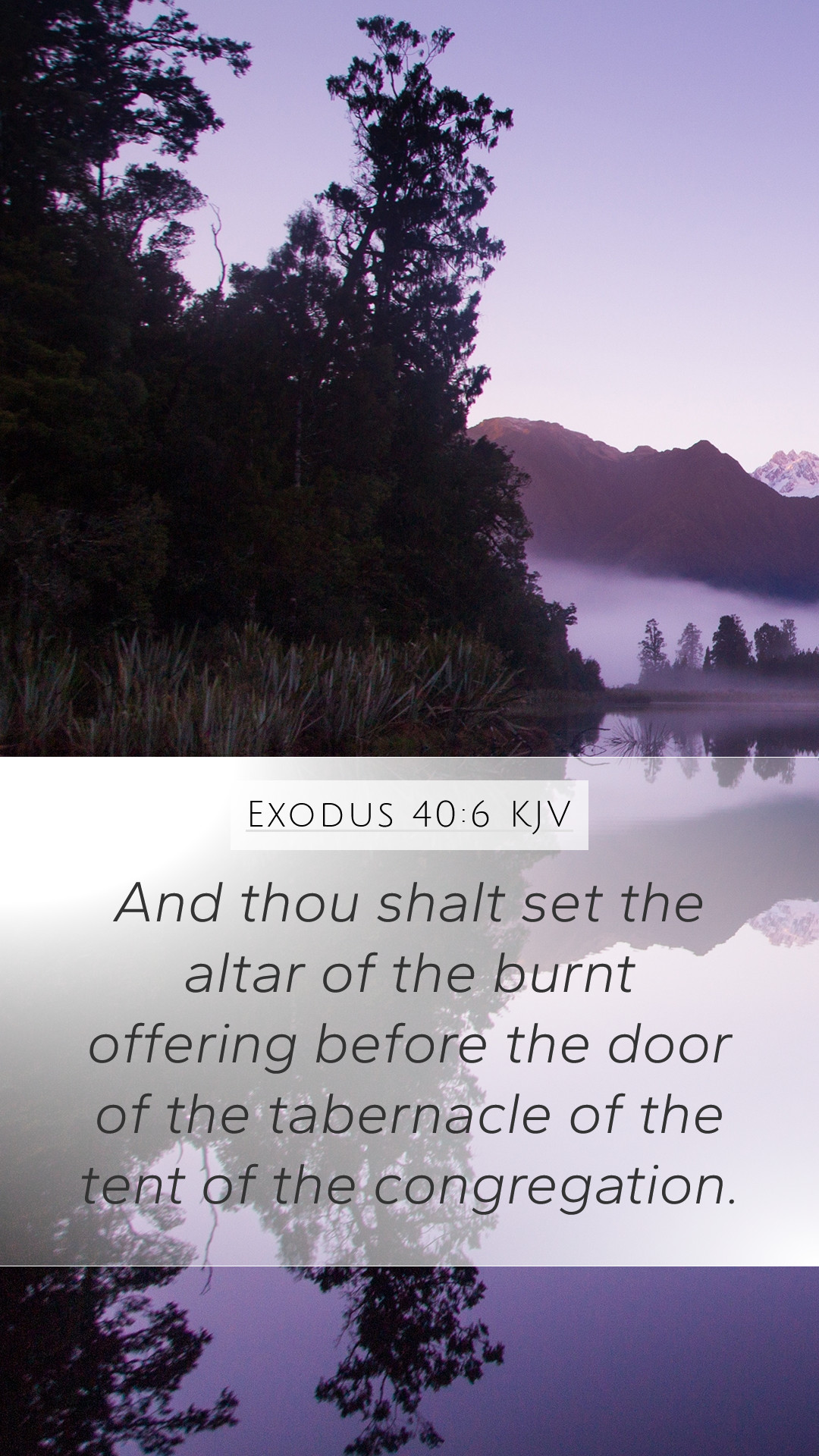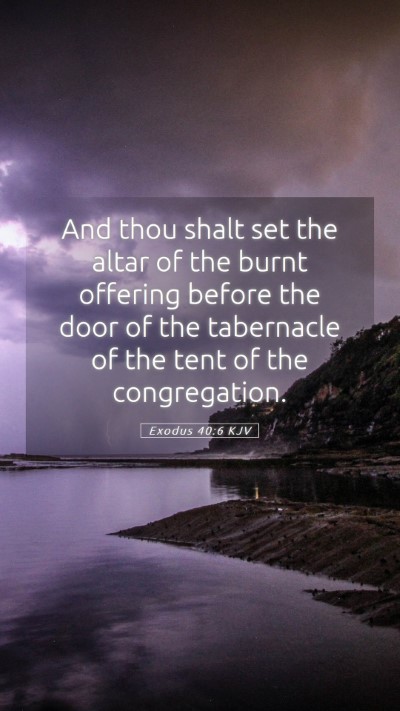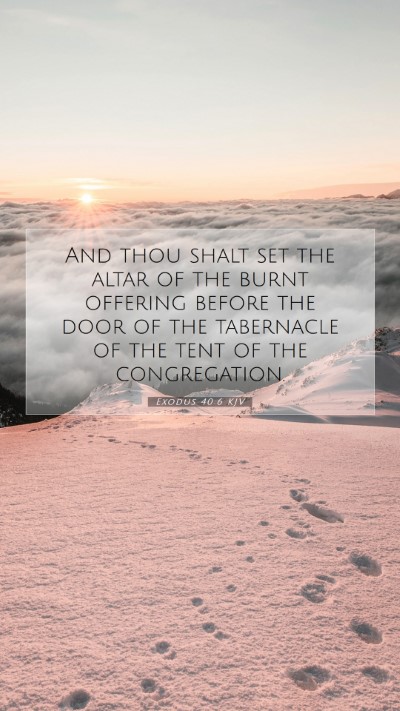Exodus 40:6 - Bible Verse Meaning and Commentary
Verse: Exodus 40:6 states, "And thou shalt set the altar of the burnt offering before the door of the tabernacle of the tent of the congregation." This verse is pivotal in the establishment of the tabernacle’s structure and services.
Overview
The verse commands the positioning of the altar of burnt offerings in front of the tabernacle. This placement is significant as it functions as a crucial element in the worship and sacrificial system outlined in the Mosaic Law.
Insights from Public Domain Commentaries
-
Matthew Henry's Commentary:
Henry remarks on the importance of this altar as a symbol of atonement and forgiveness, emphasizing that sacrifices made here signify the people's need for reconciliation with God. The altar being in front of the tabernacle underscores the accessibility of God’s mercy to the Israelites.
-
Albert Barnes' Notes on the Bible:
Barnes highlights that the altar of burnt offerings serves as a place of worship and the blood of the sacrifices atones for sins. This positioning demonstrates the necessary steps of approaching God: through sacrifice, signifying humility and repentance.
-
Adam Clarke's Commentary:
Clarke comments on the logistics of the altar's placement and its role in facilitating the sacrificial rituals prescribed for the Israelites. He suggests that this was to be a central point for communal worship and signifies the beginning of the worshippers’ journey to God's presence.
Understanding the Significance
This verse serves as a foundational text in understanding the system of worship outlined in the Old Testament. The burnt offering is an essential practice, symbolizing total dedication and atonement. The placement of the altar emphasizes the connection between humans and the divine, illustrating a key aspect of biblical worship.
Symbolism in Worship
The altar's placement before the tabernacle suggests that divine communion, mediated through sacrifice, is central to the worship experience. This reflects both the honor due to God and the acknowledgment of human sinfulness.
Application in Daily Life
For modern readers, this verse can evoke themes of repentance, sacrifice, and the acknowledgment of the necessity of making things right before approaching God. It encourages individuals to consider what sacrifices they need to make to deepen their relationship with God.
Cross References
- Leviticus 1:3 - Details the burnt offering and its significance.
- Hebrews 9:22 - Discusses the importance of blood in the atonement for sins.
- Numbers 2:2 - Describes the arrangement of the camp around the Tabernacle.
Conclusion
Exodus 40:6 is more than a mere instruction for a ritual; it is a profound statement on the nature of worship and God's holiness. Through careful reflection and study of this verse using Bible study tools and resources, one can garner deep insights into the significance of biblical practices. Understanding scripture in this way provides a richer context for approaching the complexities of faith today.
Further Study Suggestions
For those engaged in Bible study groups or online Bible study, consider exploring:
- In-depth Bible verse analysis for deeper insights.
- Understanding difficult Bible passages surrounding the Book of Exodus.
- Historical context of Bible verses related to the establishment of Israel's worship practices.


